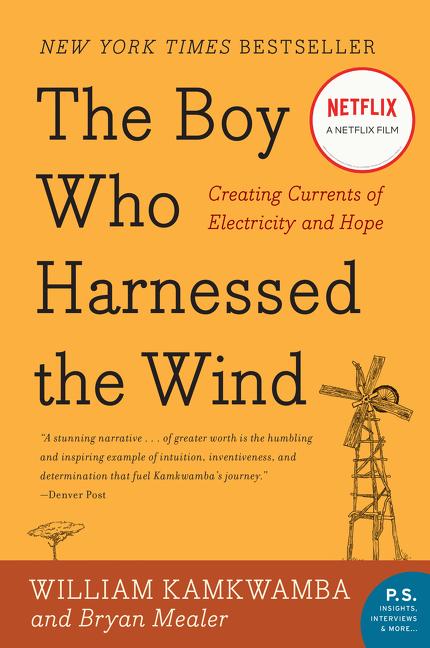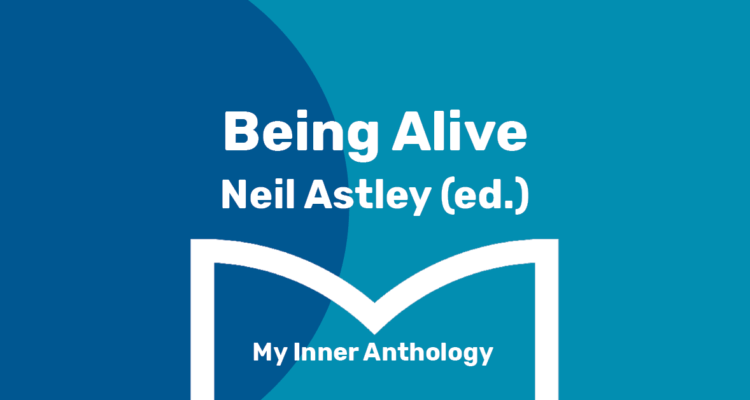My Inner Anthology: The Boy Who Harnessed the Wind by William Kamkwamba
In this feature we're thinking about which bits of literature we would like to carry around inside ourselves for future reference. This week Head of Learning and Quality, Dr. Clare Ellis, recommends The Boy Who Harnessed the Wind by William Kamkwamba. Check out the rest of our readings for Black History Month and download our calendar here.

Nothing can beat an inspiring memoir, where you as the reader can encounter the life journey of another human being in the most intimate of ways. I always prefer a memoir that will tell me something new about the world in which we live in as well as a story which shows how one can struggle through all kinds of adversity in life and still come out the other side. That gives me something solid, hope founded on fact. William Kamkwamba’s story fits this brief perfectly and it remains in my Inner Anthology after my first discovering this book many years ago by complete chance in a local charity shop.
William lives with his family in Malawi, but at only 13 years old, his interest in science is abruptly cut short as famine hits his village and his father can no longer afford to send him to school. Instead, he must help his father with the business of family farming. William finds that his world has shrunk and he is expected to accept the reduced size of things from now on.
I have often wondered why many of us lose our spark of curiosity as we grow up. I have also been struck by what can appear at the premature loss of a curious spirit amongst even the very young, perhaps due to something very difficult in life squeezing out the leisure that is required for the free play of imagination.
When William discovers a book called Using Energy at his local library, he regains such a vital space. He recalls this life changing discover early on in his memoir:
‘The cover featured a long row of windmills – though at the time I had no idea what a windmill was. All I saw were tall white towers with three blades spinning like a giant fan. They looked like the pinwheel toys Geoffrey and I once made as kids when we were bored. We’d find old water bottles people threw away in the trading centre, cut the plastic into blades like a fan, then put a nail through the centre attached to a stick. When the wind blew, they would spin. That’s it, just a stupid pinwheel.
But the fans on this book were not toys. They were giant beautiful machines that towered into the sky, so powerful that they made the photo itself appear to be in motion. I opened the book, and began to read.
‘Energy is all around you every day,’ it said. ‘Sometimes energy needs to be converted to another form before it is useful to us. How can we convert forms of energy? Read on and you’ll see.’
I read on.’
As William’s world seems to be collapsing all around him, through the hope and vision provided by his literary discovery, he is able to forge a way for a new narrative amidst the chaos. And for William, such a journey takes on very literal dimensions – as he seeks to find the parts he needs to build his own windmill, we see him literally knee deep in refuse at times, the butt of his neighbours’ jokes and scorn, as he searches amongst what he has – which is very little – to build something great. A windmill that will provide him with light, which will mean that he ‘could stay awake at night reading instead of going to bed at seven with the rest of the Malawi’ but also meant:
‘No more skipping breakfast; no more dropping out of school. With a windmill, we’d finally release ourselves from the troubles of darkness and hunger. In Malawi, the wind was one of the few consistent things given to us by God, blowing in the treetops day and night. A windmill meant more than just power, it was freedom.’
Change can be a very difficult thing to bring about in our own lives let alone for a whole community and especially so when your world is in the grip of a fundamental crisis. William’s memoir is an important reminder about what any one individual can achieve with a little bit of vision, a little bit of hope, which in William’s case is part of that convertible energy which enables him to build a new way for the future, to literally turn bits of rubbish into something else, something wonderful. I think it is a good story to remember in our own times of crisis and feel sure that anyone who reads it will feel stronger to start their own rebuilding of things, whatever and wherever that may be.
Share
Related Articles

My Inner Anthology: As You Like It by William Shakespeare
Reader Leader, Lizzie, recommends As You Like It by William Shakespeare. In May the theme for our Daily Readings is inspired by The…

My Inner Anthology: The Living Mountain by Nan Shepherd
Teaching and Learning Coordinator, Lisa Spurgin, recommends The Living Mountain by Nan Shepherd. In May the theme for our Daily Readings is…

My Inner Anthology: Being Alive – Neil Astley (ed.)
Reader Leader Lizzie, recommends and reads from 'Being Alive' - Neil Astley (ed.). In May the theme for our Daily…


